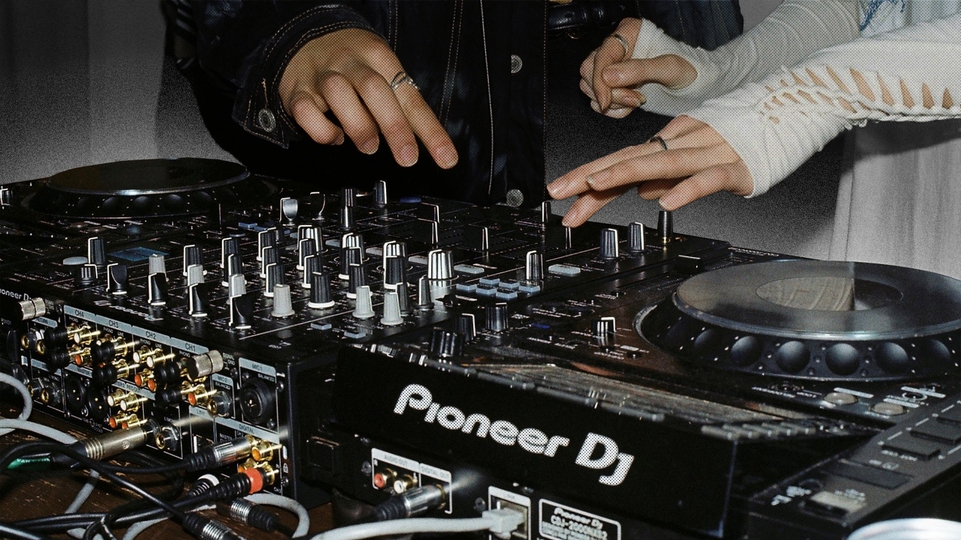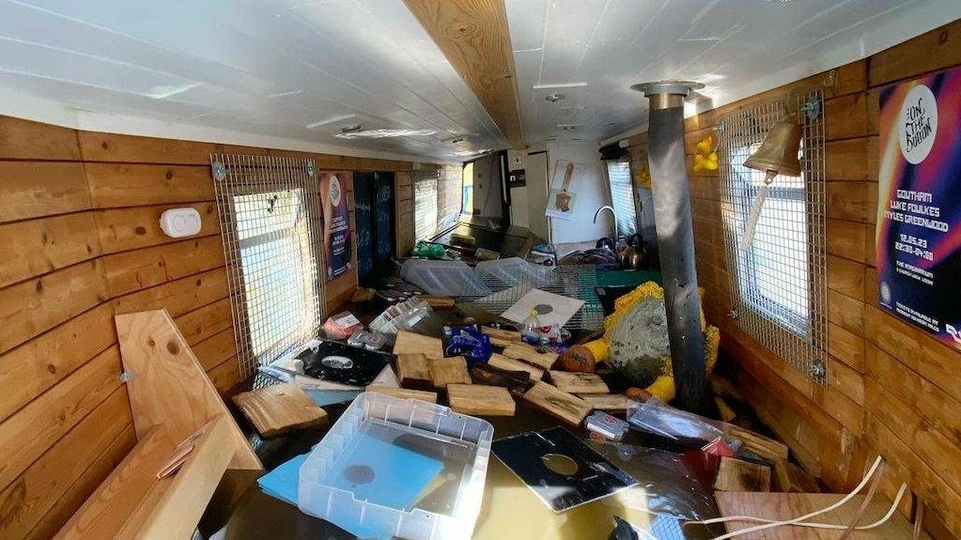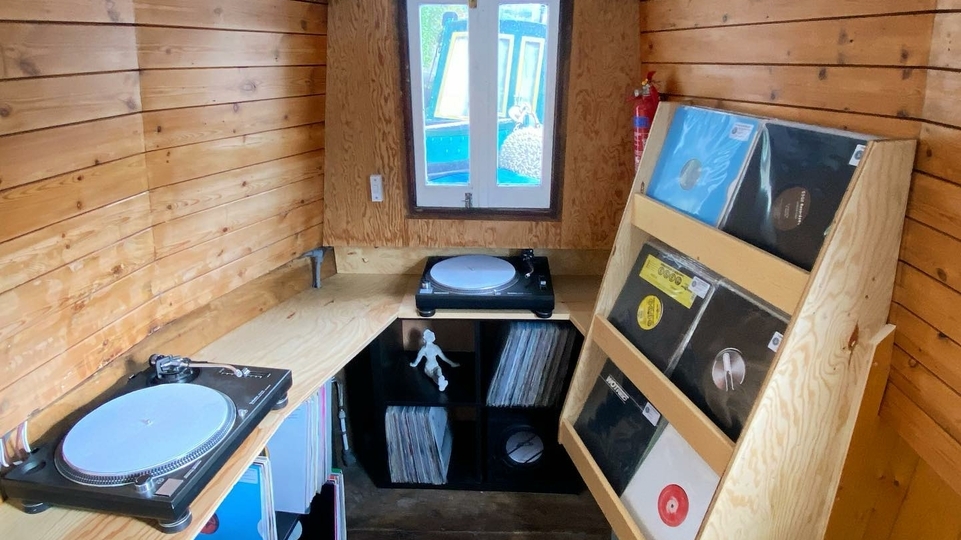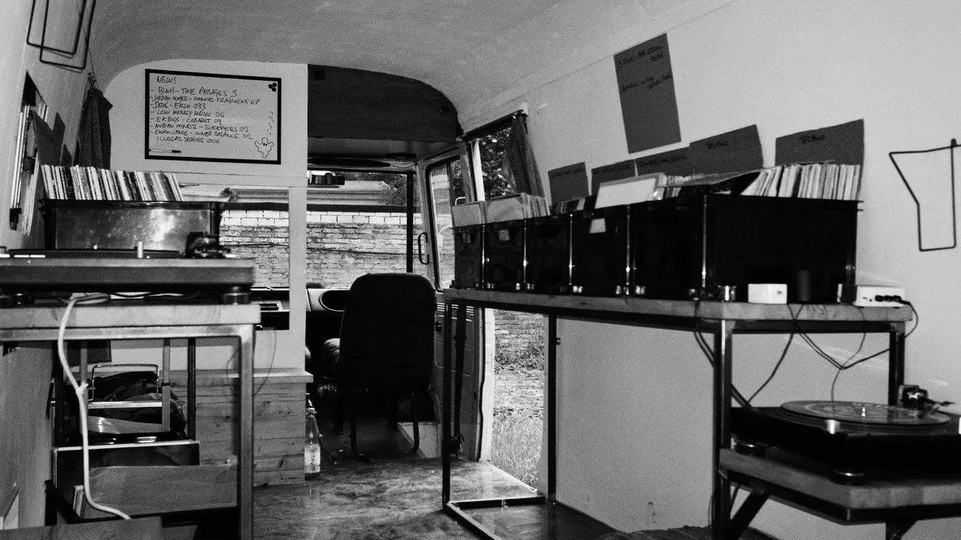
How to survive as a record store in 2023
Despite the vinyl resurgence, high costs and countless online competitors mean it’s still tough going for record stores. DJ Mag speaks to shops around the UK and beyond about the innovative methods they’re using to stay afloat and provide essential community hubs in 2023
This feature is part of our Record Store Day content series. You can also read our feature on the rise, fall and revival of UK dubplate culture, and our feature asking 10 DJs to select their most treasured dubplates
“The biggest learning curve? Managing your finances as best as you can. It’s a close call between that and running a bar, pouring pints. You don’t want to end up on the shitlondonguinness Instagram,” Peter Adarkwah had been running record label and shop, Barely Breaking Even (BBE), out of his home office for more than 20 years. It was only in 2016, when an opportunity came as a friend took on Arch 376 in Hackney, that his stock could settle into its own public space. Speaking today, his reflections might seem surprising. Yet a similar story is painted by other record shop owners across the UK and Europe; music lovers and DJs first, who have been quickly learning new skills and adding new branches to their businesses to survive.
By the end of 2022, vinyl sales topped CDs for the first time in 35 years. But prior to that, Brexit and Covid-19 had already shaken UK music, high-street retail and global e-commerce seemingly forever, while interest rates still continue to soar. Specialising in underground areas of dance music — rather than the major-label pop albums that dominated that year’s sales — makes it difficult to sustain an independent shop in a climate where real estate is scarce and expensive, and margins are squeezed tighter every day.
Launched in 1985 by artists John Berry and Martin Price (of 808 State), Eastern Bloc was originally in Manchester’s Affleck’s Palace. It’s now a few minutes around the corner with a shop front in the Northern Quarter. “These days, selling the actual vinyl itself is the challenge,” manager Jim Bane tells us. “Prices have become very high, coupled with long wait times at the pressing plants. Add this to the rise in digital music — which has its benefits of course — and vinyl is becoming more of a home-listening experience than a tool for DJs.”
Many of the store owners we speak to also run their own labels. Pressing plants help these labels to create new stock, which can then keep store shelves fresh, but there’s a problem. “We’re all selling less records than in the ’90s, yet still pressing vinyl to have something tangible,” Adarkwah says. “Small quantities are blocking up the machines — it’s far quicker to press one record a thousand times, than vice versa. And then you get the odd event where a pop star album takes up even more space... there are two ends of the scale.”

“I think variety helps. Whether we serve a teenager who just discovered Japanese jazz, or someone is looking for a techno or rock record, it’s great to meet different people” — Peter Adarkwah, BBE founder
Before helping to run Elevate — Berlin DJ Cinthie’s shop in the German capital — Carsten Schuchmann (otherwise known as Meat) co-ran Frankfurt’s Freebase store from 1994 to 2016. It’s not the first time the sector has been rocked, he tells us. “In the ’90s... it was like a vinyl paradise. But the start of the digital era in the ’00s put us in a very bad situation. In a few months the market broke.” Freebase pivoted to sell premium sneakers alongside wax, which helped to diversify the income — but also added more pressure. “The big companies are the worst,” he laughs.
Using the same tactic, today Elevate also sells clothing — mainly shirts and accessories from the brand’s in-house labels. Cinthie adds, “People want to show what kind of music they’re into and with a label shirt they feel like they’re part of the gang.” It’s a glimpse into the significance beyond simply purchasing music that record stores hold. As Dec Shuttlewood, owner of Where Wax, a pop-up shop in Nottingham, explains, “They’re a huge cultural part of every city. The place where you can meet new people and see what is happening with flyers and posters too.”

LEGRAM VG’s Anaïs Liro believes record stores can also help to build an underground scene in places where there wasn’t one previously. Though her shop is currently in a transitional period while it moves from Switzerland to France, it became known for its in-store sets, which have hosted artists like The Ghost and DJ Masda — and required three layers of makeshift soundproofing. “We see some parties happening where we were, and we know that happened through the connections made through our shop.” This strong community also proved crucial when launching a crowdfunding campaign to help with the move.
After Japan, the UK has the highest percentage of successful Kickstarter campaigns — Planet Wax’s fundraiser to launch the shop was one of them. Co-owner Chris Dexta says, “There’s so much more value than just financial. We also started to learn more about our fans and potential customers, and confirmed there was a need for our shop.”
For those with the right space, throwing parties helps to foster that creative connection while also boosting cashflow. Jim Bane agrees, “Putting on curated events in a small intimate space has been a huge focus for us at Eastern Bloc. 10 years ago we took the opportunity to diversify into a bar, café and club space as well as the record shop and website, which has been key in our survival.”
Moving on from its original Deptford arch space was bittersweet for Planet Wax, but it’s now in a much bigger unit with a bar and 3am licence. Events range from open-deck nights hosted by LGBTQ+ drum & bass community Unorthodox, to takeovers curated by Subtle Radio’s Amy B, and a networking day from EQ50, with ambitious plans to venture into music education in the future. So far, it’s working. “Currently we have 10 staff on rotation,” says Dexta, “which I’m really proud of. I never knew we’d get to that point.”

“When we were drawing up our business plan we were foreseeing that we’d need to sell online, but we were focused on physical first” — DEXTA
For some though, finding affordable rent today means sacrificing being in a city centre with high footfall or plenty of space. In 2021, Myles Greenwood purchased a boat, which was an “absolute tip”, and spent 18 months renovating it to launch Rubber Ducky Records, which now floats somewhere between Leeds and Manchester. Myles launched his shop on a boat not only for the novelty, but for affordability — something that’s happening more and more on the residential market too. Dec Shuttlewood has operated Where Wax as a pop-up shop in Nottingham since 2016, but only after the offer he’d had for a room in the city centre fell through, losing the money he’d invested in renovating it. [UPDATE: Last week the boat that houses Rubber Ducky was damaged in transit, destroying thousands of pounds worth of equipment, records, and the boat itself. A GoFundMe has been launched to help Rubber Ducky get back in business. You can donate here].
When Antony Daly’s space in Newcastle was demolished, 586 Records moved just 15 minutes down the road, but across the bridge away from the shopping centre and into a converted industrial building in Gateshead. “I’ve had to switch around my idea of doing things. I was a record shop with storage space out the back. Now, I’m a storage space that’s also a shop. I do most of my work online.” While it’s difficult to encourage locals to walk to the new shop, Antony notes that often touring DJs playing in the city will readily visit the store. “I’m going to be opening later in the evening too,” he says, “to try and catch people when they’re finishing work.”
Being flexible with shop hours is a popular tactic, especially when there is lots of new stock to sort and online orders to list. Cinthie agrees, “It’s better to be open three hours and people come together, rather than eight hours and the same amount of customers come in. We love seeing people, but we also have so many other things to be doing!”
The rise of web orders has been game changing for each of these shops, whether it’s through platforms like Discogs or their own online storefront, which tools like Shopify have enabled. Planet Wax launched just before the pandemic’s restrictions took hold. “When we were drawing up our business plan we were foreseeing that we’d need to sell online, but we were focused on the physical first,” says Dexta. “But Covid-19 sped all that up just a few months later.”
Elevate was online first before expanding into a physical shop, which Cinthie tells us helped to grow her international fanbase. The same is true for LEGRAMVG, which also sells specially curated Digger bags ranging from ‘beginner’ to ‘peak time’, providing a new experience. “They were born because of Covid-19,” co- owner Oscar VG says. “We’re not advertising the music that goes in them and people need to have that trust in us and our reputation. It’s a strange way to sell records but people really like them.”

Constantly sourcing quality stock — and keeping their social media followers updated about new drops — is key for all of these shops. Myles expands, “If someone makes the effort to come to the boat, but the shelves aren’t on point, they’re not going to tell their mates. But if they go away with loads of gems, word will spread really well.” Good relationships with distributors are essential for new releases. Rare, obscure releases can often be found on the second-hand market, but Brexit makes it difficult for UK shops to source from overseas, while rising train ticket prices could make visiting a tempting collection across the country unviable.
Antony has a unique approach at 586: “I sell people’s records on their behalf. Sometimes it’s records coming in that I’d never come across, so it really freshens up the stock.” Some stay niche, choosing to entice diggers in with their curated collection, while others like BBE spread their wings out into wider musical styles. “I think variety helps,” Peter Adarkwah says. “Whether we serve a teenager who just discovered Japanese jazz, or someone is looking for a techno or rock record, it’s great to meet different people.”
Underpinning this all, of course, is a welcoming experience. Offering a community alongside excellent music will encourage people to shop more. Dexta sums it up: “I’ve been to other shops in my lifetime and the experience hasn’t always been the best. I’ve always said to Lewis, my business partner, let’s make sure we’re not like those other places that get those kinds of comments. The world is negative enough — we’re creating our space so people can get away from all that.”





